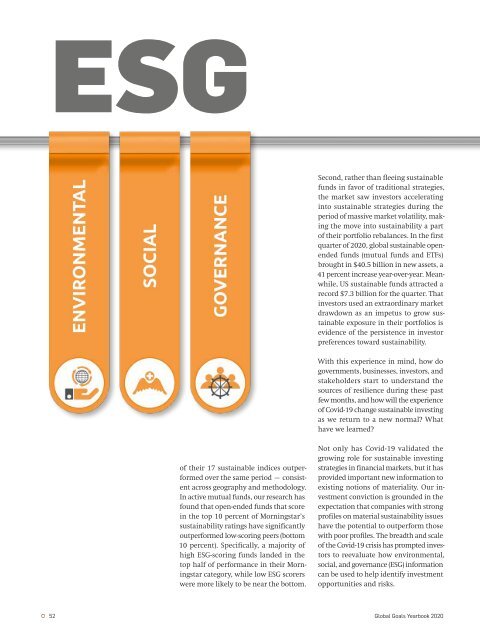Planet under Pressure
The 2020s are the make-or-break decade for Sustainability. But Covid-19 questions almost everything. How can we handle increasingly frequent shocks? What can a resilient society and economy that is in line with planetary boundaries look like? These and many other questions are discussed in the new 2020 edition of the Global Goals Yearbook titled “Planet under Pressure”. The Yearbook supports the UN Sustainable Development Goals and is one of the publications in strong international demand.
The 2020s are the make-or-break decade for Sustainability. But Covid-19 questions almost everything. How can we handle increasingly frequent shocks? What can a resilient society and economy that is in line with planetary boundaries look like? These and many other questions are discussed in the new 2020 edition of the Global Goals Yearbook titled “Planet under Pressure”. The Yearbook supports the UN Sustainable Development Goals and is one of the publications in strong international demand.
Create successful ePaper yourself
Turn your PDF publications into a flip-book with our unique Google optimized e-Paper software.
ESG<br />
Second, rather than fleeing sustainable<br />
funds in favor of traditional strategies,<br />
the market saw investors accelerating<br />
into sustainable strategies during the<br />
period of massive market volatility, making<br />
the move into sustainability a part<br />
of their portfolio rebalances. In the first<br />
quarter of 2020, global sustainable openended<br />
funds (mutual funds and ETFs)<br />
brought in $40.5 billion in new assets, a<br />
41 percent increase year-over-year. Meanwhile,<br />
US sustainable funds attracted a<br />
record $7.3 billion for the quarter. That<br />
investors used an extraordinary market<br />
drawdown as an impetus to grow sustainable<br />
exposure in their portfolios is<br />
evidence of the persistence in investor<br />
preferences toward sustainability.<br />
With this experience in mind, how do<br />
governments, businesses, investors, and<br />
stakeholders start to <strong>under</strong>stand the<br />
sources of resilience during these past<br />
few months, and how will the experience<br />
of Covid-19 change sustainable investing<br />
as we return to a new normal? What<br />
have we learned?<br />
of their 17 sustainable indices outperformed<br />
over the same period – consistent<br />
across geography and methodology.<br />
In active mutual funds, our research has<br />
found that open-ended funds that score<br />
in the top 10 percent of Morningstar’s<br />
sustainability ratings have significantly<br />
outperformed low-scoring peers (bottom<br />
10 percent). Specifically, a majority of<br />
high ESG-scoring funds landed in the<br />
top half of performance in their Morningstar<br />
category, while low ESG scorers<br />
were more likely to be near the bottom.<br />
Not only has Covid-19 validated the<br />
growing role for sustainable investing<br />
strategies in financial markets, but it has<br />
provided important new information to<br />
existing notions of materiality. Our investment<br />
conviction is grounded in the<br />
expectation that companies with strong<br />
profiles on material sustainability issues<br />
have the potential to outperform those<br />
with poor profiles. The breadth and scale<br />
of the Covid-19 crisis has prompted investors<br />
to reevaluate how environmental,<br />
social, and governance (ESG) information<br />
can be used to help identify investment<br />
opportunities and risks.<br />
52 Global Goals Yearbook 2020
















